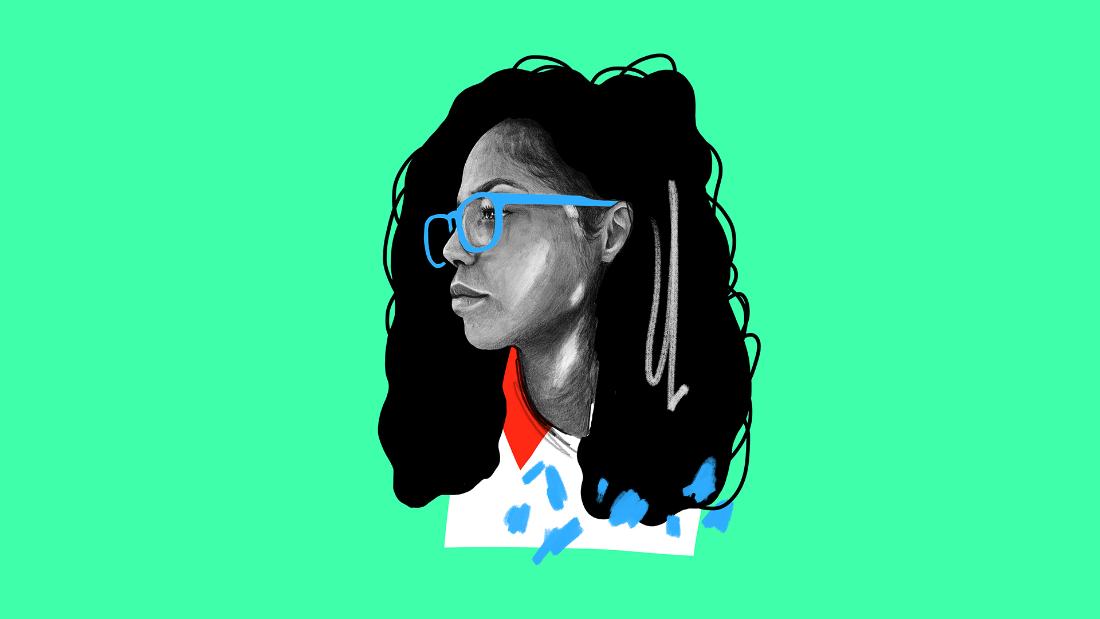
If you follow Sara ElHassan on twitter be prepared for some sharp social and political commentary, complete with a little bit of sarcasm and zero tolerance for bullshit. Meeting Sara in person was actually not very different. She speaks with the rhythm of a spoken-word poet; Spelling out hard-hitting truths and filling every syllable with passion, she articulates her hopes for her country with insistence, and expresses her desire for the freedom of her people with urgency—a people that have risen once again in a revolution against years of oppression and dictatorship.
While I could easily imagine her as the loud protester at the front of the march, her determined rallying cry rippling through the crowds, the contributions Sara has made to the current revolt have actually come through the power of her writing—and from thousands of miles away, too.
As a freelance writer, blogger, poet and editor, she has always written about Sudanese social and political issues, publishing her work on her own blog, but also for publications with a wider reach like CNN and OkayAfrica. One of her more recent pieces on the art fueling the Sudanese revolution, a series of uprisings that have persisted since last December, reflects her commitment to strengthening the role of art as a catalyst for social change. She has held her belief in art as a revolutionary tool since moving back to Sudan after college and recognizing just how much passion and talent is waiting to be unleashed in her home country.
In 2012, together with several of her friends and collaborators, Sara started a monthly event series and literary club called Nas with Notepads in Khartoum that brought together aspiring writers and poets to engage in writing workshops, collaborative work and performance. The events were usually private and would be publicized through a mailing list. But after gaining a lot of traction and attracting 4000 participants, Nas with Notepads held their first public event as part of 100 Thousand Poets for Change. The event was a great success, but as soon as the first Arabic poem was read, the authorities shut it down. Eventually they had to stop holding events all together.
Sara knew the power of literary art in influencing and educating. But until the current political movement began, putting into motion a wave of talent and energy in art that spread quickly and drove people to take to the streets, she had never understood that visual and graphic art could fuel change in her country to the same degree as writing. She hopes that by sharing this art on her social media, by writing about it and publicizing it, she can help fuel the revolution and reach people in a way that her alone words can’t and in the long run, she hopes to help create the environment for Sudanese artists to have the support they need.
I first met Sara when my student association invited her to give a talk at Wellesley based on a professor’s recommendation. Her talk was focused on gender, media and art of the Sudan Uprisings and it was completely different from any lecture or talk I had attended at the college in the past. Not only were we hearing from a highly sympathetic young person about a powerful political movement that had just ousted a long-standing dictator, but her perspective turned out to be very unique. Sara was born in the US, but lived in Sudan for many stretches of her life and since 2017 has been based in Arizona.
As a Sudanese-American she feels she is always in between—not Sudanese enough for the Sudanese, not American enough for the Americans. And it is from this vantage point that Sara writes about the issues of her country. “I am fortunate enough to have an outsiders perspective and be more critical but at the same time I have a very deep understanding of Sudanese culture. So my analysis is not lacking context.”, she explains. Though her in-betweenness comes with a set of challenges, she is grateful for the role she is able to play in amplifying people’s voices and putting the international spotlight on Sudan. She does it not only to fight stereotypes about Sudan, Africa and post-colonial countries in general, but also because an international eye on a local issue is a method of protecting those vulnerable to the brutality of dictators.
Sara ElHassan feels passionately about her people’s freedom and the important role that art and advocacy can play in making change. Her dream is for Sudan to have a civilian government that cares about its people and gives them the chances and opportunities they deserve in life.

